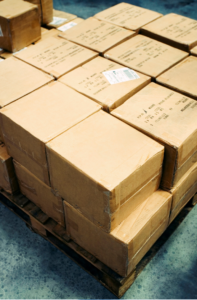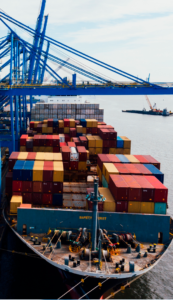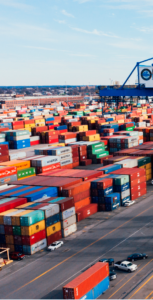Understand how accounting can contribute to the success of customs logistics operations. A [...]
Customs logistics is an activity that involves making decisions about the best transport solutions, the technical characteristics of the operation, compliance with legal requirements, customs clearance, among other actions.
For logistics operations to run smoothly, special care must be taken with the processing of documents and compliance with the rules of each country.
In this sense, accounting plays a key role in the success of companies operating in this sector. Find out more below.
The role of customs logistics

- Transportation of goods;
- Product storage;
- Separating and preparing products;
- Handling and delivery of inputs, raw materials and finished products.
The role of customs logistics in international foreign trade operations is to analyze the import or export stages, structure them and manage them according to each company's objectives.
This includes choosing the type of transport, technical characteristics, compliance with health requirements, relations with customs, among other processes.
International logistics
This branch of logistics aims to connect manufacturers with their partners in the industrial network, such as suppliers, transporters and operators located in different parts of the world.
All cargo handling involving international trade must go through this process.

Likewise, when the ship arrives in Brazil, it will have to go through all the customs procedures at the Federal Revenue Service. All these procedures correspond to international logistics work.
Requirements encountered in customs logistics
The company responsible for logistics processes in the form of product transportation needs to be aware of the requirements of the federal agencies in each country.
Taxes and documents in customs logistics
Import and export routines require many documents. And they vary according to the country, its legislation, taxes and local customs rules. It is of the utmost importance that the logistics manager is prepared for inspections.
Every product that has a permit needs permission to enter foreign territory. Different types of goods therefore have different permits.

Using software that manages documents electronically is an excellent alternative for saving time and avoiding missing documents.
In addition, hiring a specialized accounting firm can provide support on the tax side.
Alignment with legislation
As we mentioned above, the procedures for complying with requirements and demands can vary from country to country. For this reason, it is essential to have full knowledge of local legislation.
The use of automated systems with foreign trade functionalities then speeds up the issuing of permits, referrals, payment of customs duties and other procedures, optimizing operations.
Goods control

Once again, the use of software is the ideal way to achieve assertiveness in this task, with careful and precise control of each product.
These tools save significant time for staff, who can then use it to take care of other important business tasks.
It is worth remembering that it is necessary to pay attention to the Sefaz import control, which has rules for import and export operations defined by the Finance Department of each state.
Processes and bodies involved in Brazil
Customs clearance can be done at the port or in secondary zones (dry ports), which are then stations of the Federal Revenue Service.
Companies specializing in this service have the task of designing the most cost-effective operation for the product or client at any given time, so a detailed diagnosis is made to minimize logistics costs, which here in Brazil are higher than the world average.

- Ministry of Agriculture, Livestock and Supply (MAPA);
- National Health Surveillance Agency (ANVISA);
- National Institute of Metrology, Standardization and Industrial Quality (INMETRO);
- Ministry of Science, Technology, Innovation and Communications;
- Federal Police Department (DPF);
- Brazilian Institute for the Environment and Renewable Natural Resources (IBAMA);
- National Electric Energy Agency (ANEEL);
- National Film Agency (ANCINE);
- National Council for Scientific and Technological Development (CNPq);
- National Agency of Petroleum, Natural Gas and Biofuels (ANP);
- National Department of Mineral Production (DNPM);
- Department of Foreign Trade Operations (DECEX);
- Brazilian Post and Telegraph Company (EBC);
- Army Command (COMEXE).
It's important to remember that artificial intelligence is an important ally in the management of customs services. The loading, freight and transit phases are manual, but there are technologies that support cargo tracking, tracking and procedures with the IRS.
The process of legalizing goods, called customs clearance, is completely computerized.
READ ALSO: Accounting firms: the salvation from bureaucracy for your import company
The importance of accounting for your import business
As you can see, accounting is of the utmost importance to the success of import businesses.
As these are complex operations and processes, working with a wide variety of documents and tax rules, having experienced advice makes all the difference.
Specialized accounting then helps to save time, avoid delays in shipments, minimize the risk of losses and increase the efficiency of import work.
If you have an import business, CLM Controller can give you all the support you need to streamline operations. Visit our website and find out more.


Very good, I like it.
I like this.
Hello, Carlos,
Thank you for your interest!
Big hug...
Once again, we'd like to thank you for your compliments and your interest in the content we post on our blog!
All the best to you...